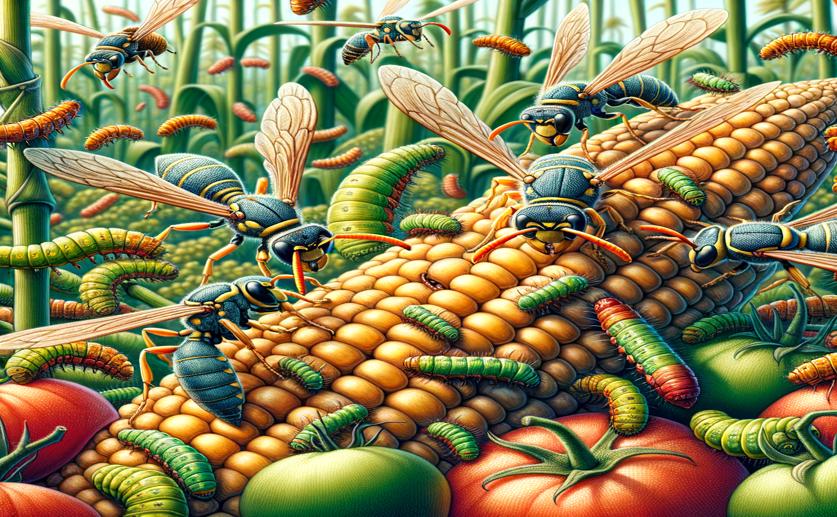
First Report of Tiny Wasps Controlling Fall Armyworm in Crops
Jim Crocker
29th May, 2024

Image Source: Natural Science News, 2024
Key Findings
- The study was conducted in maize-growing areas of Qena Governorate, Egypt, to find natural egg parasitoids for controlling fall armyworm (FAW)
- The researchers identified Telenomus remus as the only egg parasitoid present in the collected FAW egg masses
- Telenomus remus showed varying parasitism rates, with higher rates on older egg masses, indicating its potential for biological control of FAW in Egypt
AgricultureEnvironmentAnimal Science
References
Main Study
1) First report of Telenomus remus Nixon (Hymenoptera: Scelionidae) on Spodoptera frugiperda Smith (Lepidoptera: Noctuidae) in Egypt
Published 28th May, 2024
https://doi.org/10.1186/s41938-024-00789-1
Related Studies
2) Parasitoid Distribution and Parasitism of the Fall Armyworm Spodoptera frugiperda (Lepidoptera: Noctuidae) in Different Maize Producing Regions of Uganda.
3) A deadly encounter: Alien invasive Spodoptera frugiperda in Africa and indigenous natural enemy, Cotesia icipe (Hymenoptera, Braconidae).
4) Integrative taxonomy and phylogeography of Telenomus remus (Scelionidae), with the first record of natural parasitism of Spodoptera spp. in Brazil.



 17th May, 2024 | Jenn Hoskins
17th May, 2024 | Jenn Hoskins